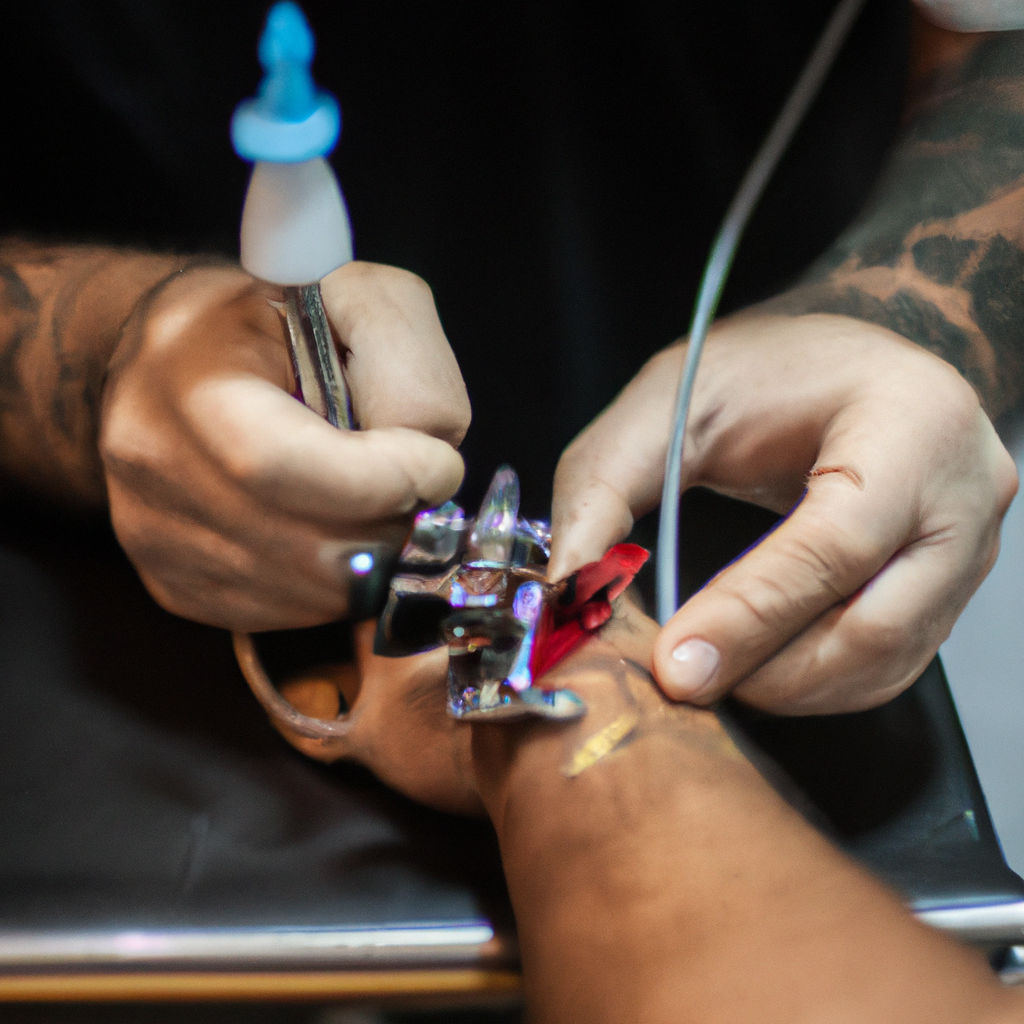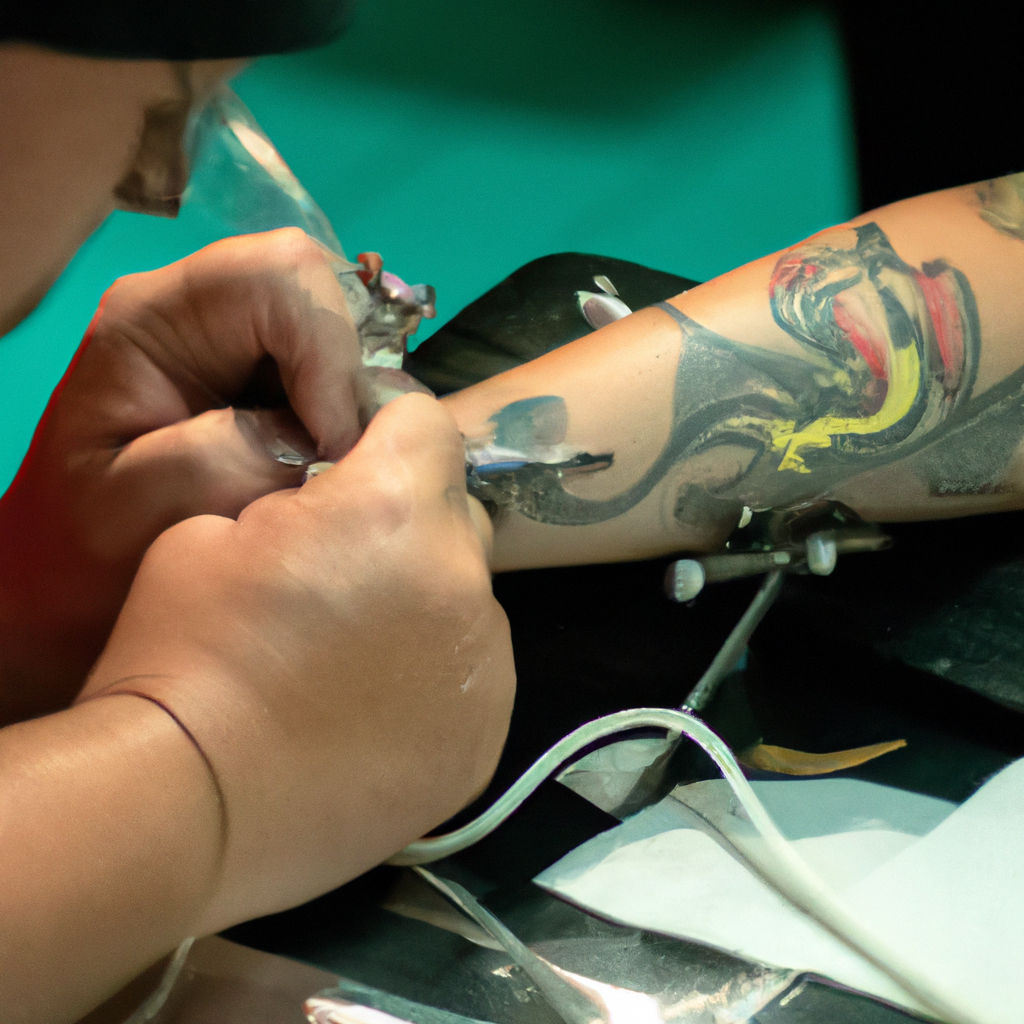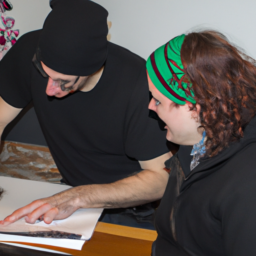“Choosing Your Hebrew Tattoo in 2024: Words, Phrases, and Meanings”
The art of tattooing has been practiced for thousands of years, with cultures all over the world using ink as a form of self-expression and identity. One trend that has garnered significant attention, both historically and in recent times, is the use of Hebrew tattoos. These carry a profound cultural and historical significance, often symbolizing heritage, faith, and philosophy. This article endeavors to serve as a guide, enabling readers to navigate the complexities and subtleties of this fascinating form of body art, and helping them choose a meaningful Hebrew tattoo.
Respecting the Sacredness of Hebrew Language in Tattoos
At the heart of this exploration is an intrinsic understanding and respect for the Hebrew language. Given its sacredness and cultural significance, mishandling or misuse of Hebrew words, phrases, and symbols can be disrespectful. This is especially true when intertwined with the religious importance many of these bear in Judaism. Therefore, it is integral to approach the selection of a Hebrew tattoo with an attitude of reverence and a genuine desire to understand its deeper significance.
More than just a collection of unique scripts and phonetics, Hebrew is known for its beauty and complexity. Creative and rich in symbolism, the Hebrew alphabet permeates with cultural and religious essence, which amplifies its relevance when used in tattoos. However, this also underscores the importance of ensuring its translation, grammar, and overall usage is accurate and respectful. Therefore, when choosing a Hebrew tattoo, an understanding of its true meaning and significance within the Hebrew culture is vital.
Exploring Hebrew tattoos encompasses a journey into the language’s alphabet, grammar, and overall structure. The Hebrew alphabet, known as Aleph-Bet, is uniquely structured with 22 letters, each carrying specific connotations. The next step in selecting your Hebrew tattoo involves understanding the grammatical complexities of the language – an essential undertaking if your tattoo involves more than a single word. Thus, it becomes crucial to master these essentials, or seek professional help to minimize potential inaccuracies or disrespect. This endeavour is not only about finding a beautiful Hebrew tattoo but is also a journey into the deep, captivating realm of Hebrew culture and history, urging us to tread with respect and mindfulness.
Understanding the Hebrew Alphabet and Language Structure
In the world of tattoos, Hebrew commands a unique and significant place due to its ancient roots, linguistic charm, and spiritual resonance. Central to appreciating its value is understanding the Hebrew alphabet and its unique language structure. Unlike English and other Indo-European languages, Hebrew is written and read from right to left.
The Hebrew Alphabet
The Hebrew alphabet consists of 22 letters. Each letter symbolises a particular sound, number, and cosmic force. This assigns every letter a distinct philosophical, spiritual, and numerical value, placing a rich layer of hidden meanings and messages within the language. Unlike many other languages, there are no capital letters in Hebrew; instead, certain letters gain a different representation when they appear at the end of a word.
Popular Hebrew Words for Tattoos and Their Meanings
Delving into the realm of Hebrew tattoos, there are several popular words that bear profound meanings. Their significance ranges from spiritual, philosophical, to personal values, often holding poetic aesthetics. Hence, these Hebrew words form popular choices for tattoos.
A Few Renowned Hebrew Words
One of the most common Hebrew tattoos is perhaps “Ahava”, which translates into the universal and powerful emotion of ‘love’. “Chai”, meaning ‘life’, is another popular choice, reflecting the value of existence. “Emunah”, signifying ‘faith’, is favoured by individuals who want to express their profound trust in the divine.
Spiritual and Philosophical Interpretations
These words often have deeper spiritual and philosophical undertones. For instance, “Chai” doesn’t just signify life; it also encompasses the value of living, reminding the bearer of life’s preciousness. Alternatively, “Emunah” goes beyond mere faith. It’s symbolic of the deep-seated belief in the divine plan, the strength to stand through trials, and the perseverance to hold onto hope in adversity.
Choosing a Hebrew tattoo represents more than just an impulse. It is about appreciating the language’s rich heritage and accessing its intrinsic beauty, making it not just a body art but a lasting token of wisdom and spirituality.

Decoding Popular Hebrew Words for Tattoos and their Meanings
The world of Hebrew tattoos draws from the profound and spiraling depths of Jewish theology, philosophy, and spirituality. The usage of Hebrew words in tattoos can offer sublime messages and deep philosophical interpretations.
One popular word is “Ahava,” which in Hebrew translates as “love.” Choosing this word for a tattoo can serve as a symbol of love, devotion, or passion. Another widely-used Hebrew word in tattoos is “Chai,” denoting “life.” It can represent the vitality and sanctity of life, embodying the divine spark within each being.
“Hakuna Matata,” a word that has gained popularity due to pop culture, possesses a profound essence in the Hebrew paradigm. In Hebrew, it denotes a philosophy of “no worries”, conveying a beautiful ethos of resilience and endurance.
Delving into Symbolic Hebrew Symbols and Their Significance
Moving away from the Hebrew language, let’s examine the visual realm of symbolic Hebrew symbols and their associated meanings. The “Star of David” or “Magen David,” representative of Jewish identity and Judaism, is widely used in tattoos. Deriving from Kabbalistic ideas, the intertwined triangles represent the relationship between God, the Torah, and Israel.
The “Hamsa,” an ancient Middle Eastern symbol in the shape of a hand is believed to bring protection, luck, health, and good fortune. Despite its roots in Semitic tradition, it has become a staple in Jewish symbolism.
Another symbol often encountered in the tattoo world is “Aleph,” the first letter of the Hebrew alphabet. It signifies unity and the origin of the universe, making it a rich symbol to imbibe in a tattoo.
Bear in mind that these symbols bear significant cultural and historical weight. Therefore, before permanently inking them into your body, it’s vital to comprehend their meanings at depth.
Importance of Accurate Translation and Transliteration
Choosing a Hebrew tattoo is a deeply personal and potentially life-long decision, so ensuring accurate representation of the language is paramount. The process of translating English phrases or words into Hebrew can be full of potential pitfalls. Unlike in English, where letters represent sounds, in Hebrew, each character can represent a sound, a number, or even a conceptual idea. This complexity in translation can lead to misunderstandings and ultimately, an inaccurate tattoo. Another crucial aspect is the process of transliteration – converting a text from one script to another – and its challenges. Hebrew is written right-to-left, and without proper guidance, mistakes can easily be made in the orientation of letters or words, leading to a tattoo that doesn’t convey the intended meaning. Therefore, it’s highly recommended to seek professional help to avoid these common errors and ensure your tattoo accurately represents what you wish to express.
Consulting with Hebrew Speakers and Scholars
Consulting with native Hebrew speakers or scholars can provide invaluable assistance in your quest to select the perfect Hebrew tattoo. They can verify the meaning of your chosen word, phrase, or symbol, corroborate its appropriateness, and ensure your tattoo aligns with your intended message. Engaging with these experts can provide nuanced interpretations of the language that simple translation tools may overlook.
Reaching out to Hebrew speakers and scholars, however, should be approached with respect and consideration. Be open to their input and remember that your chosen tattoo bears implications beyond its aesthetic appeal. It’s a symbol that carries the weight of a rich cultural history and religious significance. Each interaction is a learning opportunity that not only brings you closer to your ideal tattoo but also enriches your understanding of the Hebrew language and culture.
Choosing a Hebrew tattoo with care and diligence reflects a deep appreciation for the Hebrew culture. It demonstrates your willingness to engage respectfully with the tradition and conveys the profound meaning of your chosen Hebrew words, phrases, or symbol with the respect it deserves.

Addressing Potential Controversies and Cultural Sensitivity
When it comes to the use of another culture’s language and symbols, particularly in the context of tattoos, it’s crucial to be mindful of potential controversies and to approach the matter with utmost cultural sensitivity. This is especially true for the Hebrew language, which carries deep historical, religious, and cultural significance.
The art of tattooing has a complex position in various cultures, and in Jewish culture, tattooing is not traditionally accepted. There have been discussions around tattoos with Jewish themes, and while it’s not inherently disrespectful to have Hebrew characters or symbols tattooed on your body, some individuals might still find it unacceptable or offensive.
Guiding Principles for Cultural Sensitivity
To avoid any controversies or unintentional offence, being well-informed about the cultural context and the potential implications is necessary. The primary principle is respect. Ensure that any Hebrew word, phrase or symbol you choose to tattoo is not sacred or holy, as this may amount to appropriation or desecration.
Valuing accuracy over aesthetics is also crucial. Misinterpreted or illegible Hebrew tattoos can not only lead to embarrassment but can also be seen as a reflection of disregard for the language and its people.
Being open to feedback is another significant aspect of cultural sensitivity. Consulting with Hebrew speakers or scholars could be a wise step to ensure that the chosen design carries the proper meaning and respect for the culture it stems from.
In conclusion, while it’s possible to choose a meaningful and respectful Hebrew tattoo, it’s vital to understand the potential controversies that could arise. Treading carefully and prioritizing cultural sensitivity will go a long way in avoiding any unintended negative impacts.

In conclusion, the choice of a Hebrew tattoo should not be taken lightly. As we have discussed, the Hebrew language carries deep religious and cultural significance, necessitating a degree of respect and understanding when using it for tattoos. Given the sacredness of this ancient language, adequate research into its alphabet, language structure, word meanings, and symbols is of paramount importance. Whether you opt for a single Hebrew word or an inspirational phrase, each contains a profound spiritual and philosophical interpretation worth understanding.
Thoughtful planning is also required to avoid potential issues with translation and transliteration. Ensure the accuracy and appropriateness of your chosen tattoo by consulting with professionals, Hebrew speakers, or scholars. This prevents unfortunate mistakes and ensures that your body art reflects your intentions accurately. It is also worth noting the potential controversies and cultural sensitivities around the usage of Hebrew in tattoos. Approaching the decision with empathy and sensitivity is essential.
Wrapping up, our aim with this guide is to provide you with rich insights about Hebrew tattoos and aid your decision-making process. Your tattoo should align with not just your personal preferences, but also an appreciation for the Hebrew culture and language. The final piece of body art should be a respectful homage to this ancient culture and language, enhancing your understanding and connection to it.
Hopefully, these guidelines have not only provided you with the information you needed but also helped you realize the importance of making choices that are culturally sensitive and respectful. Always remember that a tattoo is not merely a fashion statement; it can be a deep symbol of personal identity and belief. The choice of a Hebrew tattoo is indeed a profound one, requiring thorough knowledge and understanding. Most importantly, it demands respect for the language’s historical significance.
